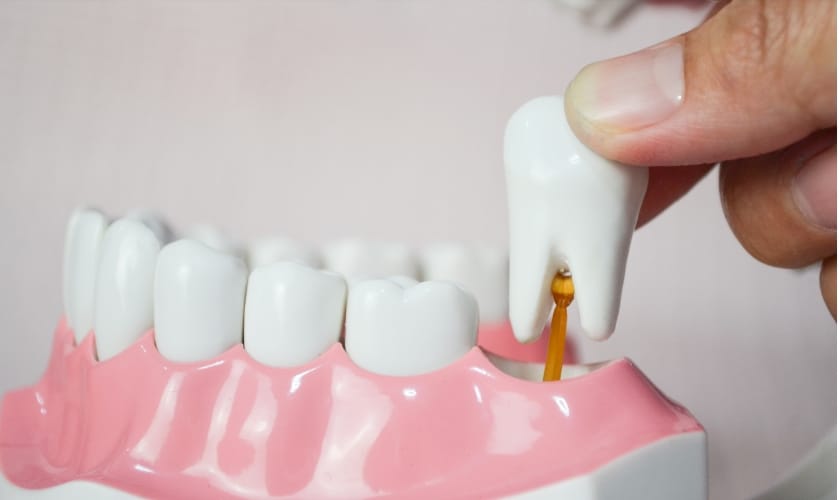When Are Tooth Extractions Necessary? 10 Common Reasons
By :
Affordable Dentist | November 13, 2023
Maintaining optimal oral health is crucial for a confident smile and overall well-being. While dentists prioritize preservation, there are instances when tooth extraction becomes a necessary step in ensuring the long-term health of your teeth and gums. Tooth extraction in Fort Worth, TX, involves the removal of a tooth from its socket in the jawbone. While the mere mention of tooth extraction may evoke apprehension, understanding the process and reasons behind it is essential for informed oral health decisions. In this guide, we will delve into the nuances of tooth extractions, exploring ten common reasons why dental professionals may recommend this procedure. You have to understand these scenarios to make informed decisions about your dental care and ensure a bright, healthy smile for years to come.
Understanding Tooth Extraction
Understanding tooth extraction is essential for anyone seeking comprehensive dental care. Tooth extraction is a dental procedure wherein a tooth is removed from its socket in the jawbone. While it may seem like a drastic measure, various circumstances warrant this intervention to safeguard overall oral health. The procedure is typically performed under local or general anesthesia, ensuring patient comfort. Following extraction, dentists may recommend various tooth replacement options, such as dental implants, bridges, or dentures, to restore both function and aesthetics.
Signs That You Need Tooth Extraction
Severe Tooth Decay
One of the primary reasons for tooth extraction is advanced tooth decay that compromises the structural integrity of the tooth. Despite advancements in dental care, some cases of decay reach a point where restoration through fillings or crowns is no longer viable. In such situations, extraction becomes essential to prevent the spread of decay to surrounding teeth and preserve overall oral health.
Periodontal Disease
Advanced stages of periodontal or gum disease can lead to tooth loss. When the supporting tissues and bones around a tooth are severely damaged, extraction may be the only viable option to prevent further deterioration and maintain the health of the remaining teeth.
Impacted Wisdom TeethThe eruption of wisdom teeth, also known as third molars, can often lead to complications. Impacted wisdom teeth, which fail to emerge from the gums fully, can cause pain, swelling, and infection. In such cases, extraction becomes necessary to alleviate discomfort and prevent potential damage to adjacent teeth.
Overcrowding
In some instances, teeth may be extracted to address issues of overcrowding. This is commonly done in orthodontic treatments, where creating space for the proper alignment of teeth is crucial for enhancing both aesthetics and functionality.
Orthodontic Treatment
Tooth extraction is sometimes recommended as part of orthodontic treatment plans. Removing a tooth strategically can aid in achieving proper alignment and ensuring that the remaining teeth are well-positioned for a functional and aesthetically pleasing smile.
Trauma or Injury
Trauma or injury to the mouth can have profound consequences on dental health, often necessitating urgent attention. Accidents leading to fractures, cracks, or extensive damage to teeth can compromise their structural integrity. In the unfortunate event of such trauma, seeking prompt dental care, including consultation with professionals specializing in teeth extraction in Fort Worth, TX, becomes crucial.
Infection or Abscess
Untreated dental infections can lead to the formation of abscesses and pockets of pus that can cause severe pain and swelling. In such cases, extracting the affected tooth is often necessary to eliminate the source of infection and prevent its spread to other parts of the mouth.
Malformed or Misshapen Teeth
Certain congenital conditions or developmental issues may result in malformed or misshapen teeth. Extraction may be recommended if the irregularities pose a risk to oral health or if corrective procedures are not feasible.
Failed Root Canal Treatment
While root canal therapy is designed to save a tooth with damaged or infected pulp, there are instances where the treatment may fail. If the infection persists or recurs despite initial attempts, extraction might be the only viable option to prevent further complications.
Advanced Gum Recession
In cases of significant gum recession, teeth may become more vulnerable to decay and loss of support. When the roots of teeth are exposed due to receding gums, extraction may be considered to address the compromised stability of the affected teeth.
In the realm of dental care, tooth extraction is a carefully considered intervention aimed at preserving overall oral health. Understanding the circumstances that may necessitate extraction empowers individuals to participate actively in their dental care journey. While extraction is often a last resort, it serves as a crucial step in maintaining a healthy and vibrant smile. Regular check-ups, timely care, and good oral hygiene prevent tooth extraction. Remember, a proactive approach to dental health today ensures a confident and radiant smile tomorrow.


